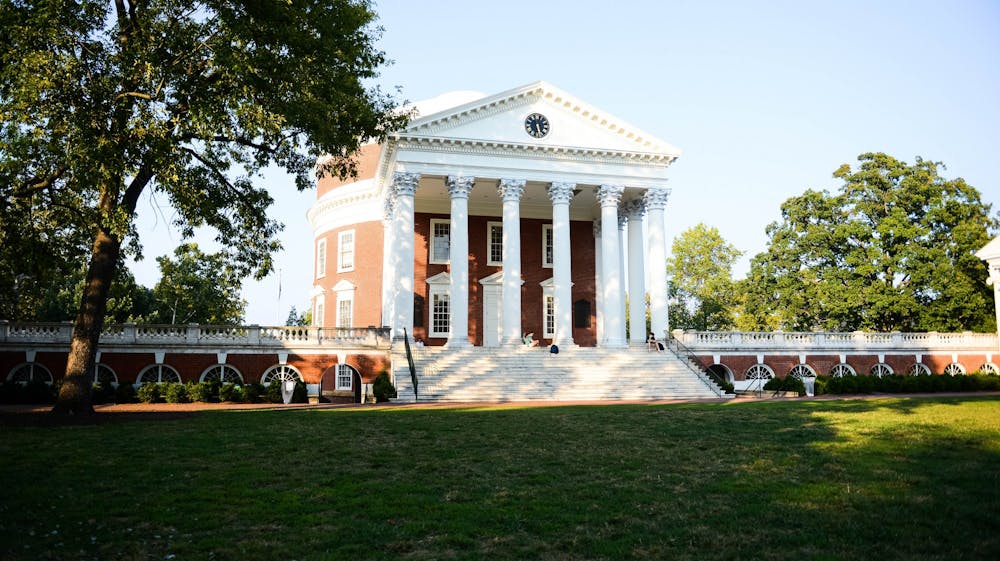On your ballot this spring for student elections, you will see an option to reduce the single sanction from expulsion to a two-semester leave of absence. As the proposal’s architect, I write in my individual capacity to explain the merits of the proposal and to seek your support.
A two-semester sanction is rehabilitative. Mistakes should be instructive, not punitive. The University should be a place for students to learn and grow as they develop the skills necessary to contribute to the workforce and to civic life. To cultivate honest and compassionate citizens, our community needs to foster integrity instead of simply excising those who make mistakes. This obligation to teach is especially necessary because students come to the University from a wide range of backgrounds and cultural traditions that often differ in how they prepare students for the academic demands of the University.
A two-semester sanction makes practical sense. Currently, professors and students are hesitant to report infractions to Honor — in part due to the possibility of a resulting expulsion and in part because the current system is so cumbersome. Reducing the sanction to a meaningful, but proportional, two-semester leave of absence would incentivize reporting and mitigate instances of jury nullification so that the system can finally function properly while still holding students accountable for their actions.
A two-semester sanction is equitable. Compared to a “multiple sanction” system, a universal sanction limits the potential for arbitrary application of different levels of sanctioning by juries. A reduced sanction that applies equally to everyone ensures that all students are treated the same before juries of their peers, no matter their background or standing at the University.
A two-semester sanction is consistent with our Honor System. We already allow students who take the Informed Retraction to return to the University after a two-semester leave. The sanction under this proposal is consistent with this policy and represents a logical evolution of current practices.
A two-semester sanction will restore faith in the community of trust. After seven years, I can confidently say that students are disillusioned with the Honor System. The core of the system — the threat of expulsion — does not foster what students appreciate in practice about our community of trust. Students want to feel secure in leaving laptops in libraries. They want to benefit from flexible proctoring of exams. They want a community. Expulsion is not the way to sustain and build this community moving forward.
Furthermore, this reform includes supplemental changes designed to help students. Most notably, the proposal allows students to plead guilty any time prior to hearing and take a two-semester leave of absence. Currently, students may only plead guilty at the initial stage of their case. But after a plea window has closed, new evidence becomes available, further interviews are conducted and circumstances may evolve. Students should be able to make informed choices about their academic futures throughout the Honor process. Expanding the temporal scope of pleas ensures that they can.
This reform is effective. Prior referenda — notably, the most recent referendum in 2016 — have suffered from imprecise core questions. They lacked procedural guidelines for what change would look like in practice. This proposal is clear — students found guilty, or who plead guilty before hearing, may make amends and return after two semesters. The improved system can be implemented quickly so that your voice can be heard and acted upon. Future students may build upon this change to continue to improve the system over time.
Finally, and most importantly, this proposal depends on you. To pass, a supermajority of students, and at least 10 percent of the student body, must vote in its favor. In the coming months, the proposal will be placed on the ballot in one of two ways. It will either be ratified by a fully representative vote before the Honor Committee, a supermajority of which supports the proposal. Or it will be advanced by proponents independently. Regardless of the procedural manner by which the proposal is put before the student body, you should consider the proposal on its merits. We will work hard to answer your questions, partner with your organizational leaders and gain your support.
Expelling students conveys that they are beyond redemption. But no student is beyond redemption. Everyone deserves a second chance. Rehabilitation is possible and is essential to preserving our community of trust and cultivating the leaders of tomorrow.
I ask that you vote “Yes” this spring so that future students inherit an Honor System that is compassionate, fair and works for everyone.
Christopher Benos is a third year student at the School of Law, a member of the Honor Committee and chair of its Appeals Committee. He authored the framework and amendments to reform sanctioning. He can be reached at christopherbenos@virginia.edu.







